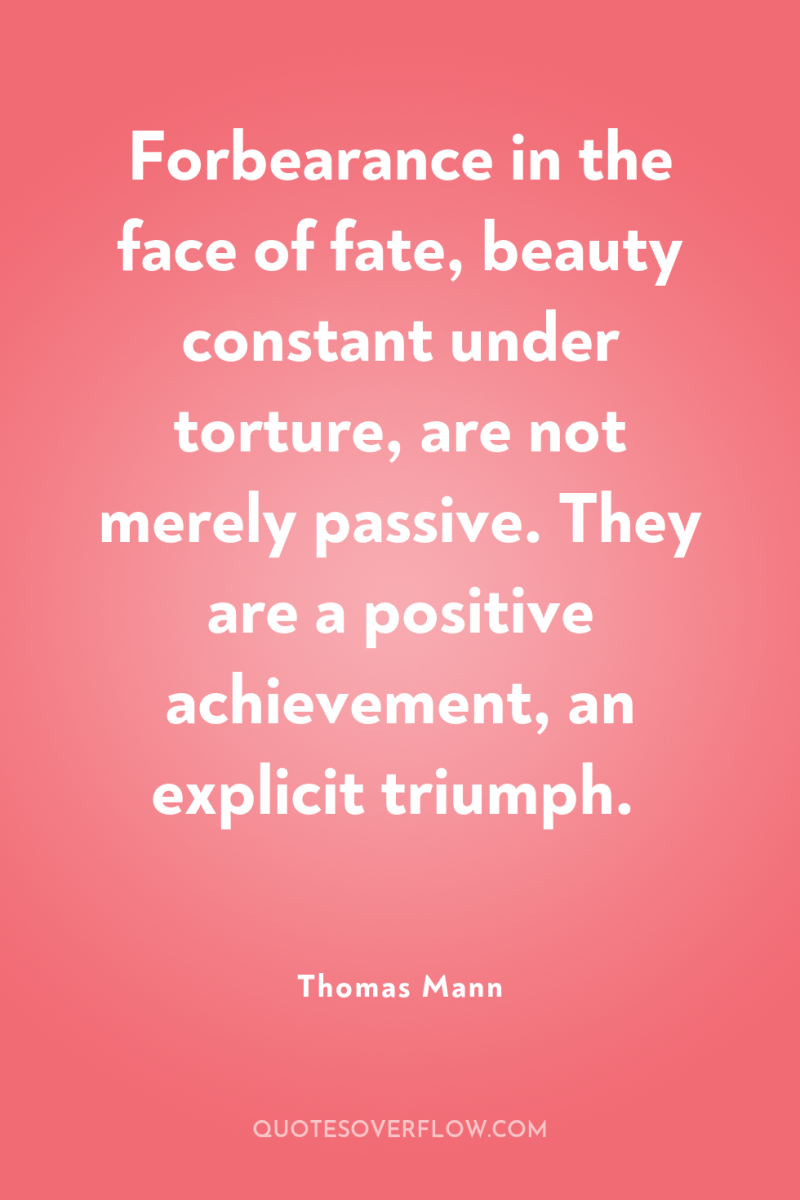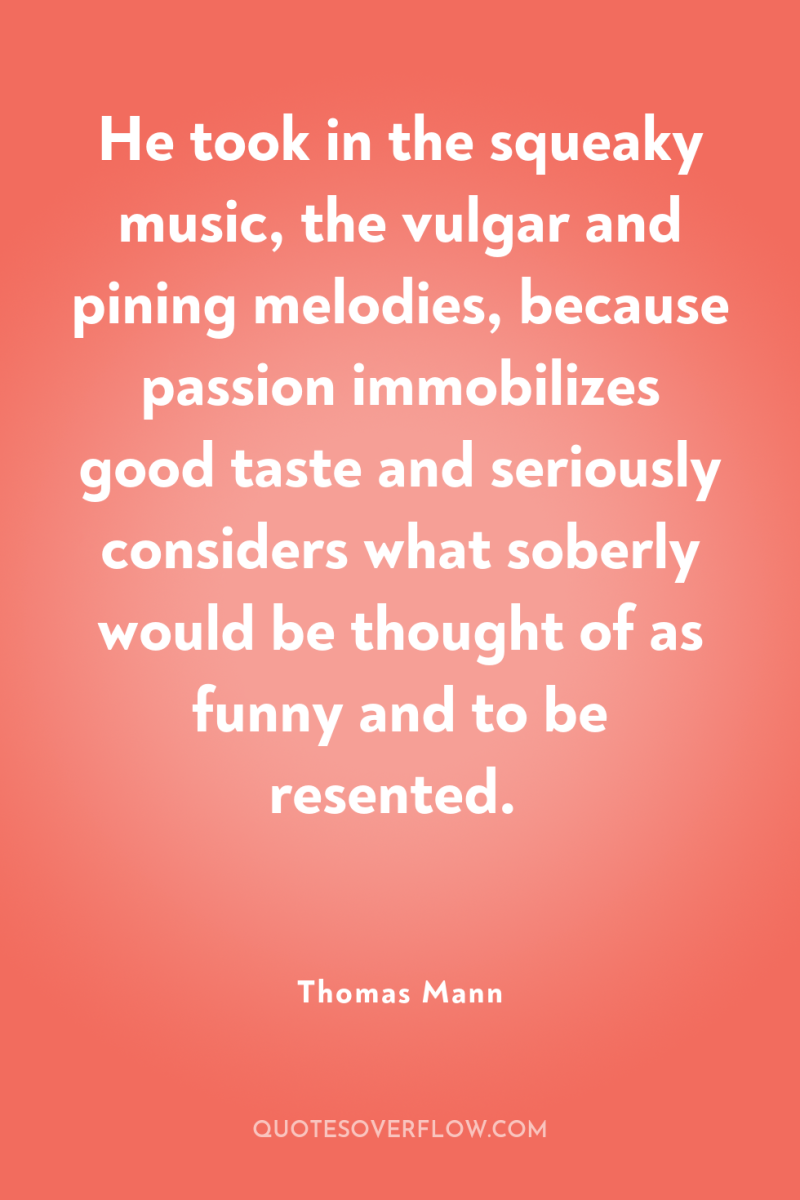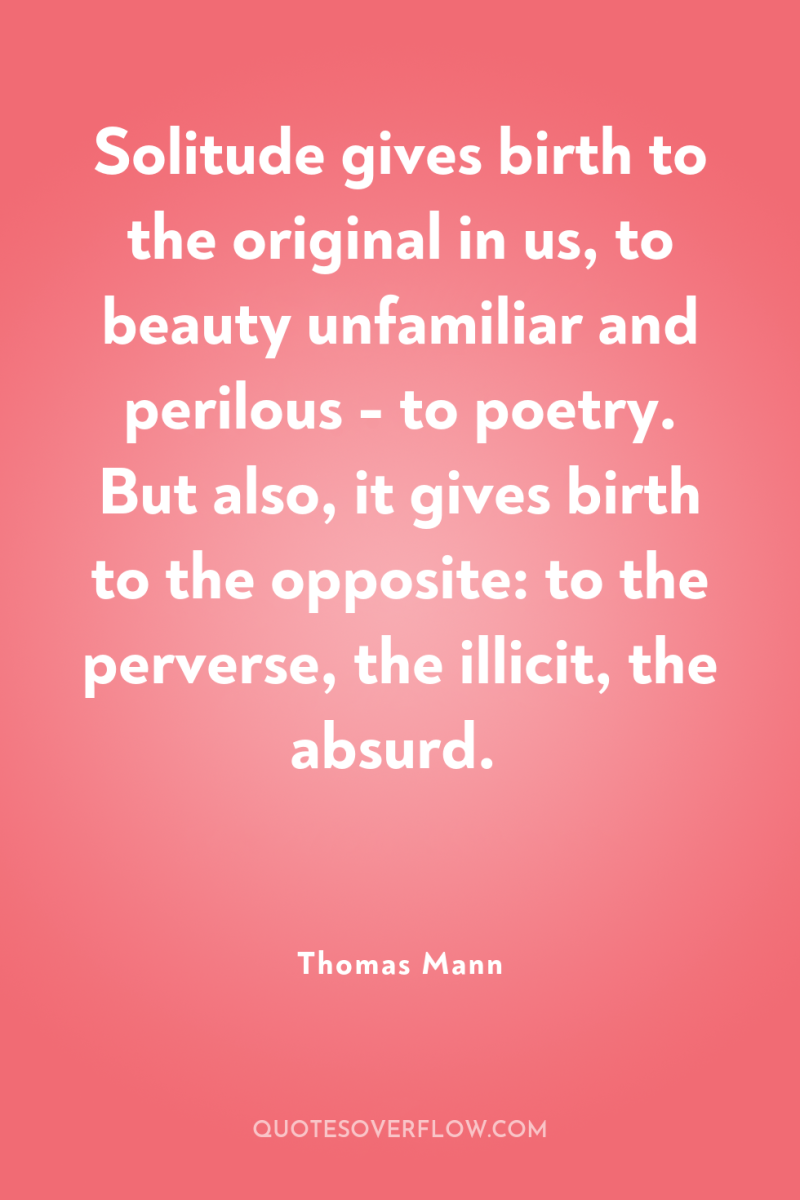1
Nothing is more curious and awkward than the relationship of two people who only know each other with their eyes – who meet and observe each other daily, even hourly and who keep up the impression of disinterest either because of morals or because of a mental abnormality. Between them there is listlessness and pent-up curiosity, the hysteria of an unsatisfied, unnaturally suppressed need for communion and also a kind of tense respect. Because man loves and honors man as long as he is not able to judge him, and desire is a product of lacking knowledge.Thomas Mann

2
Forbearance in the face of fate, beauty constant under torture, are not merely passive. They are a positive achievement, an explicit triumph.Thomas Mann

3
He took in the squeaky music, the vulgar and pining melodies, because passion immobilizes good taste and seriously considers what soberly would be thought of as funny and to be resented.Thomas Mann

4
Solitude gives birth to the original in us, to beauty unfamiliar and perilous - to poetry. But also, it gives birth to the opposite: to the perverse, the illicit, the absurd.Thomas Mann
5
There were profound reasons for his attachment to the sea: he loved it because as a hardworking artist he needed rest, needed to escape from the demanding complexity of phenomena and lie hidden on the bosom of the simple and tremendous; because of a forbidden longing deep within him that ran quite contrary to his life's task and was for that very reason seductive, a longing for the unarticulated and immeasurable, for eternity, for nothingness. To rest in the arms of perfection is the desire of any man intent upon creating excellence; and is not nothingness a form of perfection? .Thomas Mann
6
Even in a personal sense, after all, art is an intensified life. By art one is more deeply satisfied and more rapidly used up. It engraves on the countenance of its servant the traces of imaginary and intellectual adventures, and even if he has outwardly existed in cloistral tranquility, it leads in the long term to overfastidiousness, over-refinement, nervous fatigue and overstimulation, such as can seldom result from a life of the most extravagant passions and pleasures.Thomas Mann
7
What did one see if one looked in any depth into the world of this writer's fiction? Elegant self-control concealing from the world's eyes until the very last moment a state of inner disintegration and biological decay; sallow ugliness, sensuously marred and worsted, which nevertheless is able to fan its smouldering concupiscence to a pallid impotence, which from the glowing depths of the spirit draws strength to cast down a whole proud people at the foot of the Cross and set its own foot upon them as well; gracious poise and composure in the empty austere service of form; the false, dangerous life of the born deceiver, his ambition and his art which lead so soon to exhaustion --- .Thomas Mann
8
Or was he merely a mollycoddled favorite, enjoying capriciously prejudiced love? Schenback was inclined to believe the latter. Inborn in nearly every artist’s nature is a voluptuous, treacherous tendency to accept the injustice if it creates beauty and to grant sympathy and homage to aristocratic preferences.Thomas Mann
9
Innate in nearly every artistic nature is a wanton, treacherous penchant for accepting injustice when it creates beauty and showing sympathy for and paying homage to aristocratic privilege.Thomas Mann
10
Solitude produces originality, bold and astonishing beauty, poetry. But solitude also produces perverseness, the disproportianate, the absurd and the forbidden.Thomas Mann
11
A solitary, unused to speaking of what he sees and feels, has mental experiences which are at once more intense and less articulate than those of a gregarious man. They are sluggish, yet more wayward, and never without a melancholy tinge. Sights and impressions which others brush aside with a glance, a light comment, a smile, occupy him more than their due; they sink silently in, they take on meaning, they become experience, emotion, adventure. Solitude gives birth to the original in us, to beauty unfamiliar and perilous - to poetry. But also, it gives birth to the opposite: to the perverse, the illicit, the absurd.Thomas Mann